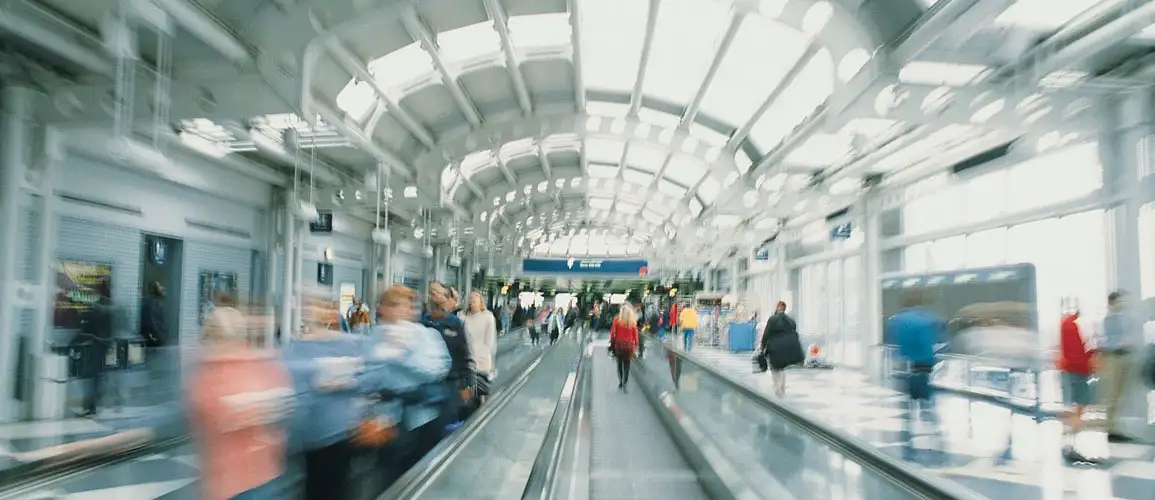
If the Department of Transportation allows airlines to implement their proposed “New Distribution Capability,” or NDC, opponents say you could no longer count on searching for the lowest airfares as you now do.
- Anonymous searches would disappear: To find even a simple fare quote, you would have to enter identifying personal information.
- Airlines would be able to tailor fares they present to you, which would not necessarily be the lowest available fares. Instead, if you have a history of paying high fares, you’d see only the high fare options.
“Nonsense,” says the International Air Transportation Association (IATA), the worldwide airline organization leading the charge for NDC. All we’re proposing is to move the airline transaction process out of the digital Stone Age and add long overdue functionality. Moreover, the new capability should make it easier for consumers to compare the increasingly complex array of fares and fees on an apples-to-apples basis. NDC is nothing more than a new and superior standard for interchange of data, based on XML, which has become the de-facto platform of choice for services and systems using the Internet protocol.
As is usually the case in these controversies, both sides have dollar-driven hidden agendas:
- The airlines want to move transactions away from the GDS (Global Distribution System, or GDS, aka “airline computers”) to more direct connections. The reason is simple: Currently, online travel agencies and other sellers rely on GDS to provide fare data and to document and process a ticket sale. And they have to pay the GDS for each such transaction—typically around $12 per ticket, according to some industry sources. With NDC, charges could drop as low as $2 to $3 per ticket. That’s a big enough difference to make NDC look like utopia for the profit-squeezed airline industry.
- Online travel sellers, on the other hand, earn lots of money through those GDS fees. Now that airlines have stopped paying commissions on most airline ticket sales, a share of the GDS fees is a vital source of income.
As is also usually the case, the consumer issues here are cloudy. On the one hand, adoption of NDC would allow sellers such as Expedia to provide travel cost comparisons among different airlines on a directly comparable basis. Enter exactly what you want on your trip—airfare, say, plus one checked bag, a preassigned seat, and an onboard snack, and the website could immediately quote you the all-up cost for that individual combination for all airlines that meet your requirements, regardless of variations in nominal fares and fee rates. That would be a big plus.
But most travelers I know wouldn’t like the idea that in order to receive consistent cost data they’d have to first enter their personal information. I know I hate those online sites that require you to “log in” before they tell you anything, and I avoid them whenever I can. Even worse is the prospect that if an airline database, for some reason, flagged me as a “big spender” and inflated the base fare in the expectation that I’d pay more than the next person. IATA says it won’t happen, but opponents say it will.
The Department of Transportation has a chance to satisfy both sides, at least partially:
- I see no harm in adoption of the XML standard, in itself. The possible harm is in misuse of the improved capability. And the benefits of easier price comparison would be substantial: In fact, I’ve argued that the OTAs should already be doing that even with the current obsolete interchange standards.
- To protect consumers, DOT could require that airlines absolutely maintain a full capability for anonymous fare and fee searches without the need to provide any personal information. Consumers who want airlines to pre-tailor displays can opt into that service, but it need not be mandatory.
Currently, this is a big disturbance in the airline business. And however it ends, you’ll see some big changes soon. Let’s hope that they’re for the better.
Ed Perkins on Travel is copyright (c) 2012 Tribune Media Services, Inc.
You Might Also Like:
We hand-pick everything we recommend and select items through testing and reviews. Some products are sent to us free of charge with no incentive to offer a favorable review. We offer our unbiased opinions and do not accept compensation to review products. All items are in stock and prices are accurate at the time of publication. If you buy something through our links, we may earn a commission.
Related
Top Fares From
Today's Top Travel Deals
Brought to you by ShermansTravel
France: 8-Night Paris, Avignon & Nice...
Infinity Worldwide Vacations
 vacation
$2880+
vacation
$2880+
Poconos: 3 Nts in Garden of...
ResortsAndLodges.com
 hotel
$305+
hotel
$305+
7-Nt Canada & New England Cruise,...
Princess Cruises
 cruise
$839+
cruise
$839+



